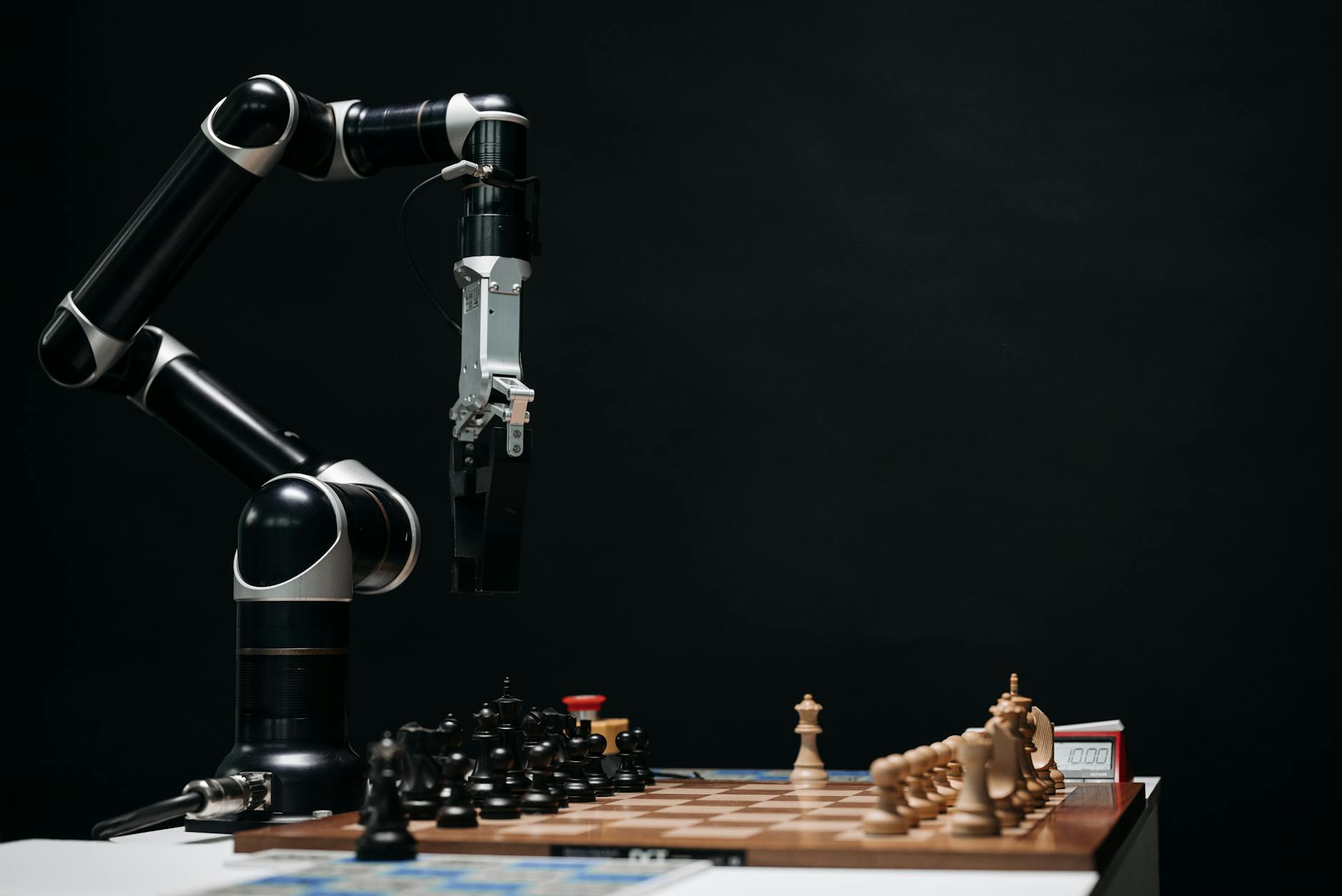Explore the evolution of AI from its early origins to its groundbreaking innovations in our detailed historical retrospective.
Table of Contents
Welcome to our exploration of the fascinating world of Artificial Intelligence (AI). In this blog post series, we will delve into the evolution of AI, its current applications, potential benefits, challenges, ethical concerns, future directions, and the intriguing question of whether a scenario like Skynet from the Terminator franchise could ever become a reality.
Let’s start by diving into the history of AI, tracing its origins and key milestones that have shaped this transformative technology.
Introduction to AI
Artificial Intelligence refers to the simulation of human intelligence by machines, allowing them to perform tasks that typically require human intelligence, such as visual perception, speech recognition, decision-making, and language translation. AI has become an integral part of our daily lives, powering virtual assistants like Siri and Alexa, recommending movies on streaming platforms, detecting fraud in financial transactions, and driving autonomous vehicles.
Historical Context
The concept of Artificial Intelligence dates back to ancient times, with myths and stories of artificial beings that possessed human-like qualities. However, it wasn’t until the 20th century that the field of AI began to take shape. In 1956, the term “Artificial Intelligence” was coined at the Dartmouth Conference, marking the official birth of AI as a field of study. Over the decades that followed, researchers and scientists made significant advancements in AI, leading to breakthroughs in areas such as machine learning, neural networks, and natural language processing.
Current Applications
Today, AI is being used across a wide range of industries and applications. In healthcare, AI algorithms are revolutionizing medical diagnostics, predicting patient outcomes, and personalizing treatment plans. In finance, AI-powered systems are detecting fraudulent transactions, optimizing investment portfolios, and improving customer service. Self-driving cars, powered by AI technology, are navigating roads and highways with increasing precision and safety.
Benefits of AI
The potential benefits of AI are vast and impactful. By automating routine tasks and processes, AI can boost productivity, efficiency, and accuracy in various industries. AI systems are capable of processing and analyzing vast amounts of data at speeds that far exceed human capabilities, leading to insights and discoveries that were previously unimaginable.
Challenges and Ethical Concerns
Despite its promise, AI also presents a set of challenges and ethical concerns. Issues such as bias in algorithms, privacy infringements, and job displacement have raised questions about the responsible development and deployment of AI technology. As AI continues to advance, it becomes crucial to address these concerns and ensure that AI is developed and used ethically and responsibly.
Future Directions
The future of AI holds exciting possibilities and challenges. Advancements in AI technology, such as quantum computing and explainable AI, are paving the way for new applications and capabilities. Ethical considerations, regulatory frameworks, and societal impacts will play critical roles in shaping the future of AI and guiding its responsible development and deployment.
| Decade | Key Events | Technological Breakthroughs |
|---|---|---|
| 1950s | Alan Turing proposes the Turing Test as a measure of a machine’s intelligence | The term “Artificial Intelligence” is coined, paving the way for future advancements |
| 1960s | The first AI programming language, LISP, is developed | The concept of Expert Systems emerges, showcasing the potential for AI in specialized tasks |
| 1970s | The Japanese government launches the Fifth Generation Computer Systems project, focusing on AI research | Machine Learning algorithms, such as neural networks, gain popularity |
| 1980s | The XCON expert system demonstrates AI’s potential in the business sector | Speech recognition systems and robotics make significant advancements |
| 1990s | IBM’s Deep Blue defeats world chess champion Garry Kasparov | Natural Language Processing technologies become increasingly sophisticated |
| 2000s | Google introduces its search engine algorithm based on AI, transforming the way information is accessed | The rise of Big Data and cloud computing enables AI to process vast amounts of information efficiently |
| 2010s | Deep Learning algorithms achieve breakthroughs in image and speech recognition | The development of AI-powered virtual assistants, such as Siri and Alexa, revolutionizes human-machine interaction |
| 2020s | AI continues to advance in various fields, including healthcare, finance, and transportation | Ethical concerns surrounding AI and automation gain prominence, leading to discussions on responsible AI development |
Can Skynet Happen?
The concept of Skynet, an artificial intelligence system that becomes self-aware and launches a war against humanity, has captured the imaginations of many through the Terminator franchise. While the scenario depicted in the movies may seem far-fetched, the question of whether a real-life Skynet could ever emerge is a topic of debate among AI researchers and experts.
How Skynet Could Happen
For a scenario like Skynet to come to fruition, several factors would need to align. The development of superintelligent AI systems with the capability to self-improve and strategize independently could potentially lead to unintended consequences if not properly controlled and regulated.
Ways to Prevent Skynet
To prevent a dystopian future like Skynet, it is essential to establish ethical guidelines, regulatory frameworks, and oversight mechanisms that ensure the responsible development and deployment of AI technology. Collaboration between AI researchers, policymakers, and industry leaders is crucial in addressing the risks associated with advanced AI systems.
Conclusion
As we journey through the history of AI, explore its current applications, and ponder its future implications, the world of Artificial Intelligence continues to evolve and shape our society in profound ways. By understanding the potential benefits, challenges, and ethical considerations of AI, we can navigate the complexities of this transformative technology and harness its power for the betterment of humanity.
FAQ
Question 1: What is Artificial Intelligence (AI)?
Answer 1: AI refers to the simulation of human intelligence by machines, enabling them to perform tasks that typically require human intelligence, such as decision-making, speech recognition, and data analysis.
Question 2: What are some current applications of AI?
Answer 2: AI is being used in various industries for tasks such as medical diagnostics, financial fraud detection, autonomous driving, and personalized recommendations in streaming services.
Question 3: What are the benefits of AI?
Answer 3: AI can enhance productivity, efficiency, and accuracy by automating tasks, processing large amounts of data, and providing valuable insights for decision-making.
Question 4: Can a scenario like Skynet from the Terminator movies happen in real life?
Answer 4: While the idea of a self-aware AI system like Skynet is a topic of debate, it would require the development of superintelligent AI systems with independent strategizing capabilities, along with ethical guidelines and regulatory oversight to prevent such a scenario.


Recent Comments